Growing Pains
Dallas, Texas
In 2013, Dallas caught my attention because of the Theatre Communications Group National Conference. It highlighted the diversity and professionalism of many theatre groups in that city, and I decided to move there. Three years later, I thought that my reason for staying would be because of the major theatres, but that’s not really the case. It’s the smaller, emerging companies and project-based groups with big ambitions and DIY spirits that are keeping me interested in this evolving city.
Dallas remains a revolving door for many young artists. Every season, a handful of twenty-something artists leave to pursue other dreams (move to a bigger market or start graduate school, for example) and many move here to start their careers in a city that lacks a clear theatrical identity. From my conversations with several young adult artists who have called Dallas at least a temporary home, here are some observations on the theatre climate. Their comments remain anonymous because they all express a deep love for this city, combined with genuine concerns for the future.
Younger artists who don’t have a family or a mortgage yet have three options: accept the conditions as they are and make concessions, leave and try your luck elsewhere, or make changes to the status quo.
Make Your Own Opportunities
While Dallas may not feel like the caricature of Texas (I’ve only seen spurs once since moving here), a cowboy mentality permeates the theatre scene. As one actor mentioned, “Young artists can say: This is what I want Dallas to be, this is the work I want to see.” And if you’re willing to put in the work and your own money into the project, you can make it happen. These smaller companies have been popping up rapidly around the city over the past three years. House Party Theatre has been producing shows all over the city, in houses, on rooftops, warehouses. Same thing with Prism Co., a movement theatre company, Goat Song Theatre Collective, The Tribe, Shakespeare at the Bar, and countless others, all driven by people in their twenties. And there’s a significant amount of cross-pollination and collaboration among these groups. The energy toward transforming the primarily abandoned Trinity Groves area into a new arts district has been spearheaded by Dead White Zombies, led by Thomas Riccio. Before any of these mentioned groups were established, Riccio offered the example to use abandoned and nontraditional spaces. That really wasn't a possibility before. More established artists have created collectives as well, including The Drama Club and Artstillery. Using creativity, you are able to find some kind of space, gather people who are interested/available/talented, and lift your idea on its feet.
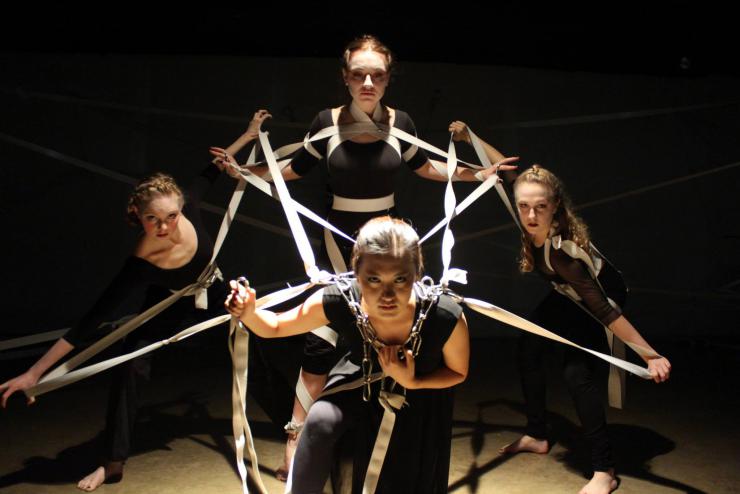
The Path to a Professional Career
While self-producing is an option that many young artists are taking, some question the longevity of that pursuit. One actor I spoke with expressed disappointment in the reality that she may have to leave Dallas one day to fulfill her dream of working primarily as an actor. While she books a few shows a year, she knows that there are only so many auditions in this market. When there’s less work, there’s a lot more riding on every single audition and the seasons announced. One actor/writer noted: “I guess you could be an actor and do voice work for FUNiMATION or commercial gigs, but where’s the sustainability?”
Another actor looked at one of the most renowned performers in town as an example of what her future could look like. This performer has a full-time day job and acts in the evenings. The actor had been cast in one of the toughest roles in an American classic for a woman. Since she works full time to support her family, she couldn’t devote herself completely to the role. During one of the previews, this actor broke down during intermission because she knew she hadn’t been able to fully commit herself with to the role—she was too busy supporting herself. As another young emerging professional noted, “Theatre in this city is like a glorified hobby for some actors.”
You can’t help but look at people a decade or two ahead of you and ask: is this where I want to end up? Younger artists who don’t have a family or a mortgage yet have three options: accept the conditions as they are and make concessions, leave and try your luck elsewhere, or make changes to the status quo. The frustration is understandable, but is the career path of an actor easily found in any of the major cities? Also, I do wonder what the generation above these artists, the ones who have created their own ladders (like Undermain, Kitchen Dog, and Second Thought) would say to these twenty-somethings. Is it worth the risk to move to a city with bigger opportunities or to push through and create the systems that Dallas lacks in the prime years of their life?
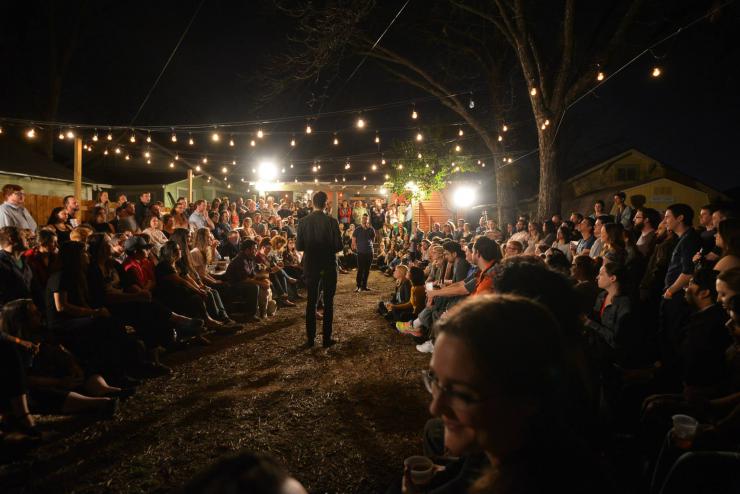
Young Artists are Finding Support from Non-Conventional Places
All of the artists I spoke with demonstrated a need for smaller, affordable theatre spaces. The Margo Jones Theatre is the most affordable conventional theatre space for these groups, but it can’t house all of them year round. As a result, they think outside the box in terms of space, with significant rewards. Making connections with local businesses like The Wild Detectives, Eight Bells Alehouse, Mill River Arts, and Deep Vellum Books have provided spaces for pop up performances. These young artists are not getting seen (regularly) at the major theatres, but places where their peers hang out.
Branching out into these other places has also sparked wider interest. For Shakespeare in the Bar’s production of A Midsummer Night’s Dream, 4200 people noted on the Facebook event that they were attending the two performances (which can only hold a couple of hundred audience members). To have that amount of interest in a singular theatrical event is remarkable. One of the results is that the young professional audiences (in this ever-increasing young professional town) aren’t necessarily getting to know the established theatres in the city. They’re going to the places their friends are producing work—wherever that may be. So it’s very likely that younger audiences are more familiar with The Wild Detectives or a warehouse in Trinity Groves than, say, Dallas Theater Center, because that’s where their friends are creating work. These are places where younger people are hanging out and feel welcome outside of a performance.
You Make a Show Here, Now What?
One of the major concerns of theatremakers in Dallas is the question of next steps for their work, primarily for playwrights. Will their work have a life? If they hustle and produce their work here in Dallas, some artists wonder, “Did I just waste my premiere here?” The city serves well as an incubator to try out new ideas, but for those who hope to move beyond Dallas, there are few examples. This question is on the forefront of many young artists’ minds when they believe they have hit a wall in their professional path. Maybe they’ve gotten a couple of roles at one of the major theatres, but what has come of it? What’s next?
Some artists profess that they need more training. The only MFA that is theatre-specific in this town is at SMU, and that’s for Acting or Design. If you want to study playwriting or directing, you have to go elsewhere. And that’s a sad reality for people who want to still participate in the evolving theatre scene, but also want a better toolbox and connections to make a full career. What’s strongest to many of these artists is FOMO: that if they stay here they will miss out on some unknown opportunity elsewhere.
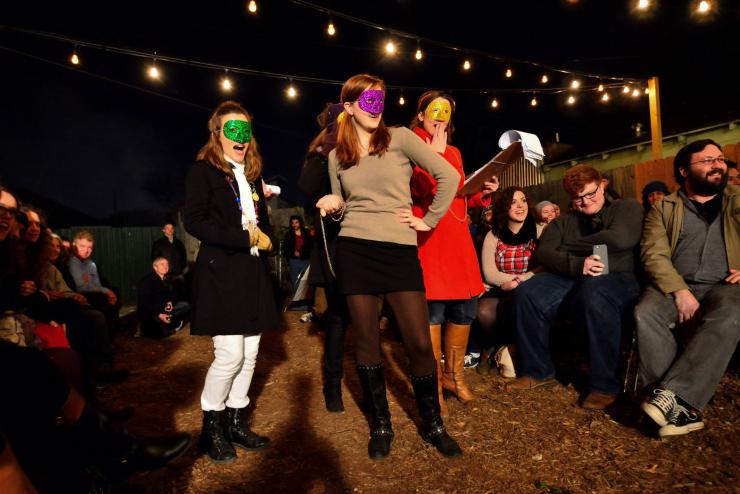
Does Dallas have a Theatrical Identity?
As one director mentioned, “Dallas feels like a very young city, where artists can impact the culture of the city and civic momentum, in a way that at least artists as young as I am would be able to do that. It feels like there’s a public that’s not over saturated with artistic offerings.” With all of the energy, many note that local voices are not brought to the forefront of many major theatres as much as they would like. There’s a trend to keep in step with the national conversation, by picking up last season’s New York hits or snagging hot writers for premieres. Local writers getting full support for development or even productions are few and far between. As one writer put it, “It seems like Dallas has an inferiority complex.” We want to be a part of the national conversation, but not necessarily by investing in our local writers to make that happen. Without real investment in local artists, perhaps Dallas will remain as a revolving door. Or perhaps, hopefully, these young pioneers will start conversations towards more substantial funding and investment in local artists.

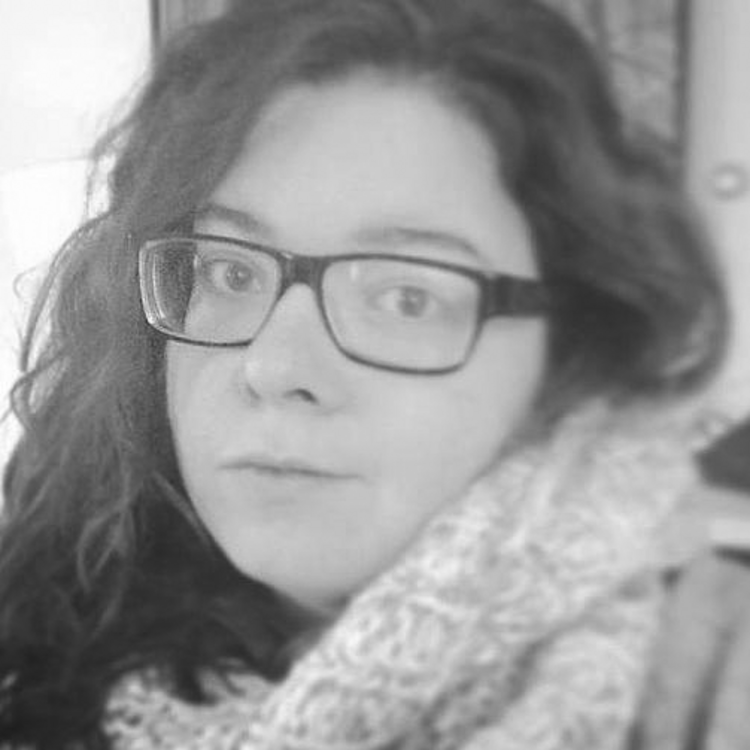
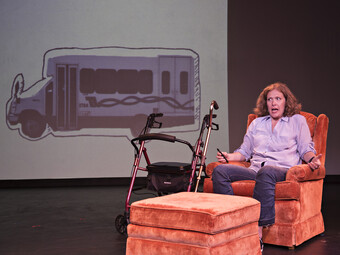



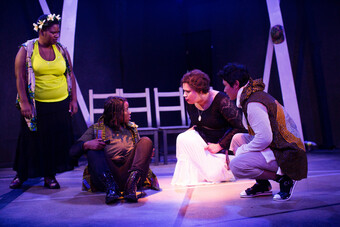


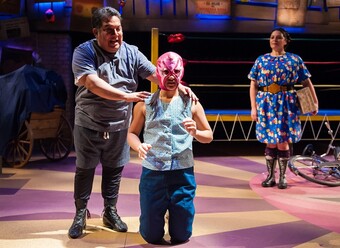

Comments
The article is just the start of the conversation—we want to know what you think about this subject, too! HowlRound is a space for knowledge-sharing, and we welcome spirited, thoughtful, and on-topic dialogue. Find our full comments policy here
Great article, Shelby. I agree with Jonathan... today's theatre artist has to be a gazillion times more savy. Not just entreprenuerial about funding, but lately they must pretty much be artist-activists just to engage with the city. The disappearing media attention is another concern. All this, of course, is on top of, you know, actually making theatre. I see why the cycle turns over ever decade or so. Young artists move in, establish artists leave or burn out. I love Dallas so much, but it really is in a perpetual state of having potential without ever fulfilling it.
At the most fundamental level the problem is that -- with the way things currently are -- there simply isn't enough money to support theater in the manner it should be. The good news is things don't have to be the way they currently are:
Picture a stack of a thousand thousand-dollar bills. This is a million dollars.
Now picture a room full of a thousand such stacks. That's a billion dollars.
Now picture a thousand rooms containing a billion dollars each. That's a trillion dollars.
That's about how much the United States spends on the military each year. More than the top ten other countries combined! (Yes, even Russia and China.) And virtually none of this goes to defending our country; most of it goes to taking sides in overseas wars... often just making things worse.
Yet when somebody comes along who wants to make peace, most people do whatever it takes -- including switching parties -- to support the person who wants to keep war going at full steam.
The people in recent months who have most talked peace are Bernie, Jill, the libertarians, and yes, even The Donald (who was called an agent of Russia for suggested we should try to make peace with Russia and maybe even pull out of NATO).
And yet the person who has most pushed war, in Libya and Syria, has called the leader of Russia "as bad as Hitler", and wants to possibly provoke WWIII by not permitting Russian jets to fly over Syria (shooting them down if they do), will likely be the next president. And most people (including theater people, the military-industrial complex, and traditional war-mongering republicans) are cool with that.
Once we no longer spend so much money on the military there will be plenty of money for theater (and the other arts). But until then there cannot possibly be.
For Dallas specifically, money is a major issue... but not necessarily that it's not going to the arts... it's the selection of which organizations get supported. Right now, the City provides 2.5 million dollars to the AT&T Performing arts center. In the new budget proposal, there is an additional 15 million dollar bail out proposed for the same center, providing an additional 1.5 million each year over the course of ten years. That additional 1.5 million each year could be distributed to many smaller or emerging companies. This organization has already spent many years building hundreds of millions of dollars in support (I've looked at the 990 tax forms).
A lot of these young artists I spoke to are doing these things, wearing many hats and they have developed a very large network. What we're seeing is that the city which helped grow those 20 or so powerhouse theatre companies is struggling to support the rising amount of younger companies springing up very rapidly. Add to that, we've had a string of shutdowns in art spaces over the past six months. And so, these very energetic theater makers are starting to look elsewhere.
Great summation Shelby of a deep problem. Universities aren't training on the business side of theater and cities aren't thinking how to build a solid theatre base, they are thinking how to get national attention so corporations will want to move here. When we moved into our space at The Core Theatre in 2012 we built the theater and put on a show in 6 weeks because we needed the cash flow ASAP. Doing a lot of original work makes it tough to build an audience because there is no name recognition. Since taking a show to Boston at the beginning of this year we've received a lot more attention, but there is no real theatre media here to let nonfriends or nontheatre people know what is going on. It seems to me the best way to get support for the theater is get influencers in the city involved and not try to do it through government there's more than enough money in this city to support a thriving artistic class. Those people just need to be woken up.
Thanks! There's a lot of money in this city. Local press has been on the decline (but Theater Jones has been steadily growing), but I am optimistic with social media. We can easily reach our own individual social networks quickly and easily, that has been very beneficial over the past few years.
Thank you Shelby for starting this important conversation.
We are blessed to have a strong culture of DIY theatre makers in this city. And many of these young (and not so young) theatre makers have set the city on fire. So much so that they’ve attracted the attention of the Dallas Fire Marshal – but that’s a whole other thing.
But it says something about a community when the fire marshal acknowledges the work happening (although, not in a positive way) while much of this work and the artists that create the work, seem to go unnoticed by the larger arts funding and philanthropy community.
To be fair, there’s not much of a model for arts funders and supporters to follow in the DFW area. We have TACA and OCA. I truly believe they are doing the best work they can within their particular models. But we need more. We need more corporate and individual support for small DIY organizations and individual artists. These groups and artists could also benefit from “operational support” – instead we only receive project based support. We have a "cowboy" mentality within the theater community. But the same CANNOT be said for the arts funding community.
There’s a lot of money in this city. But it tends to go to big buildings and the larger organizations. And that is great and necessary, too. But there is a severe lack of support for anything outside of that. Where’s our Jerome Foundation? Or Tow Foundation? Or Mimi and Harold Steinberg Charitable Trust? We need those forms of support. That’s the kind of game changer/change-maker scenario that we need now.
Yes! Just this week with the Fire Marshal issue I realized that theatre makers are trained so well in their craft in university training. But when they leave, all of a sudden they have to also be amazing at fundraising and running a theatre business in addition to their artistic work. With the fire marshal issue on top of that, we're now in a place where emerging theatre makers have to be great artists, entrepreneurs, AND building managers. There has to be more support for this to thrive. There has to be more investment in our Dallas culture to make people stay invested.
Yes! I feel that local artist have to become savvier about courting and engaging the local arts funding community, especially individuals who give generously to the arts. We make the assumption they already know about the majority of the great work happening in the community. But possibly they do not know. We assume they know about the issues facing emerging artists, but maybe not. Unfortunately, the onus is on us to provide that education and put ourselves out there in that way.
Also, beyond finding more sources of support and advocating for new funding models, we have to change the culture of how this city thinks about artists and arts. There is a huge culture shift that has to take place.
Definitely. It can't be an "extra". That's how I felt as a teaching artist at DISD, that we were something non essential, almost like a more creative and organized recess. There has to be a stronger connection between being human and participating in local art.
And yet, I know we can't let the City of Dallas, OCA and other funders off the hook. They still have to be held accountable. But at the same time we have to prove we're not without agency. Yet when we demonstrate agency... here comes the fire marshal...
I don't think we should. The OCA could really make a huge difference in the way arts are regarded in this city. I do hope some great strides are made by the new Director. I don't envy her position, as it seems that she's walked right into a tornado with flying cows (with the gallery/theatre shutdowns and outrage). From the meetings I've been to, the City seems genuinely surprised by the reactions from artists. Like we've all been in a corner finger painting or something.